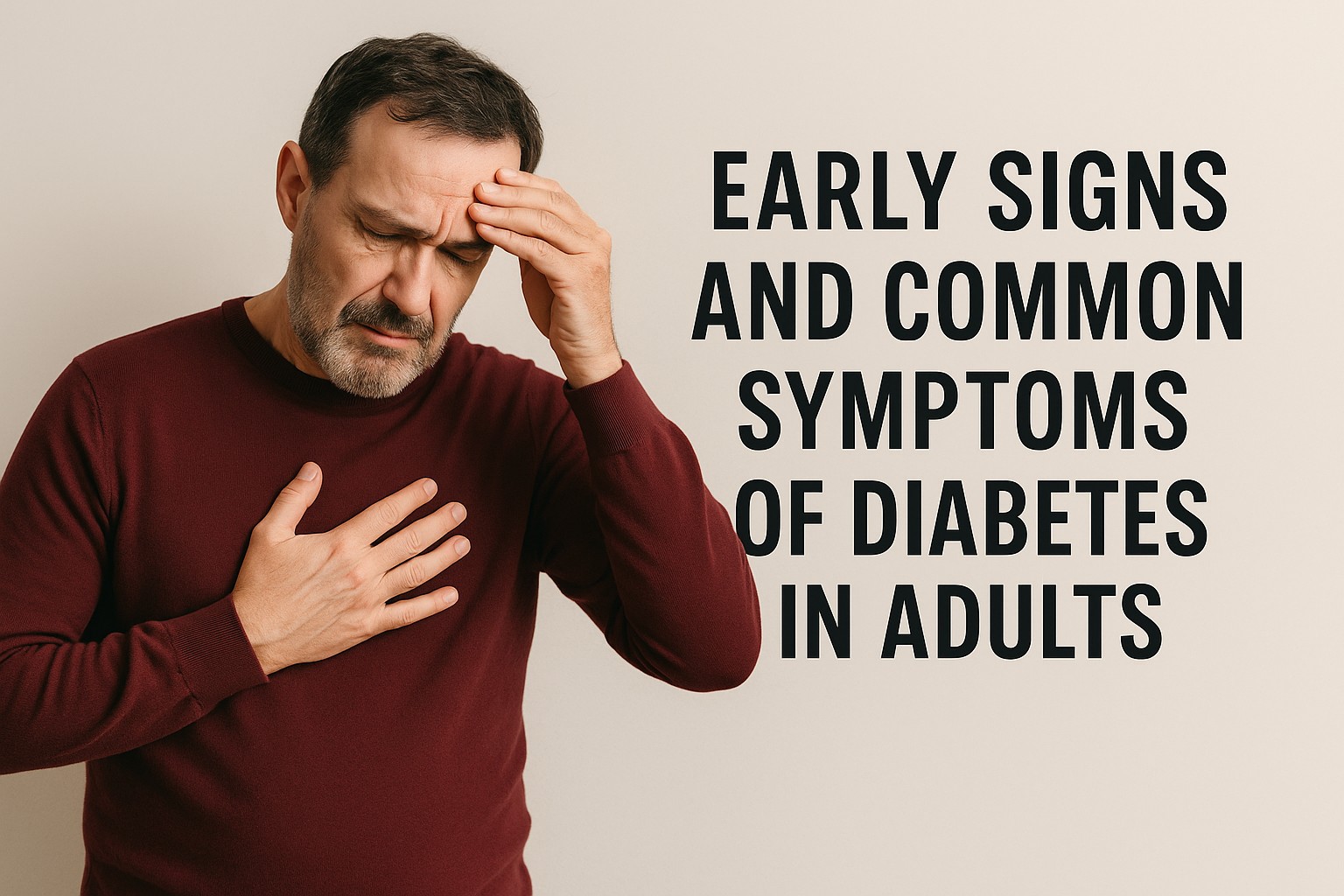Discover the most common early signs and symptoms of diabetes in adults. Learn how to recognize diabetes symptoms, including frequent urination, fatigue, and blurred vision.
Diabetes is a chronic condition that often develops silently. In fact, many people have diabetes or prediabetes and don’t realize it. The early signs of diabetes can be subtle, which is why understanding the common symptoms is so important. According to the CDC, more than 34 million Americans have diabetes (with about 95% of cases being Type 2 diabetes), and about 88 million more have prediabetes. Recognizing the warning signs early on can lead to timely diagnosis and management, helping prevent complications down the road. This article will walk you through the most common diabetes symptoms in adults, especially for Type 2 diabetes, and how to know if you might have this condition.
Excessive Thirst and Frequent Urination
One of the hallmark blood sugar symptoms of diabetes is needing to urinate often and feeling excessively thirsty. You might notice that you’re running to the bathroom more than usual, including waking up at night. High blood sugar causes your kidneys to work overtime to filter out the excess glucose, leading to dehydration and a constant need to drink water. If you find yourself constantly sipping water and visiting the restroom, it could be an early sign of diabetes.
Increased Hunger (Polyphagia)
Feeling hungry all the time, even after eating, is another common early sign. Diabetes makes it difficult for your cells to absorb glucose for energy, so your body stays in “feed me” mode. This symptom, known as polyphagia, is a key indicator of diabetes. If you’re eating plenty of food but still feel hungry shortly after, your body might be signaling a problem with blood sugar.
Unexplained Weight Loss
Unintended weight loss, without a change in diet or activity, can signal diabetes. In diabetes, the body burns fat and muscle tissue for fuel instead of glucose. This can lead to noticeable weight loss, especially in people with undiagnosed diabetes. If you are losing weight without trying, it’s time to speak with your healthcare provider.
Fatigue and Irritability
Chronic fatigue is a common early symptom of diabetes. When your cells are not absorbing sugar properly, energy levels drop. Dehydration and frequent urination can also contribute to persistent tiredness and mood changes like irritability or difficulty concentrating. If you’re constantly exhausted and can’t pinpoint why, it could be related to blood sugar levels.
Blurred Vision
High blood sugar affects the lens of your eyes, leading to blurred vision. You may have trouble focusing or find that your vision in one or both eyes becomes unclear. While this symptom can be temporary, untreated high blood sugar may result in permanent vision problems. Don’t ignore changes in your eyesight, especially if you experience other symptoms of diabetes.
Slow-Healing Wounds and Frequent Infections
Cuts and scrapes that take a long time to heal may be an early warning sign of diabetes. High blood sugar levels impair circulation and the body’s natural healing process. People with diabetes also experience more frequent infections, such as urinary tract infections or yeast infections. These issues occur because high glucose levels help bacteria and yeast thrive.
Tingling or Numbness in Hands and Feet
Tingling, numbness, or burning sensations in the hands or feet can be an early sign of diabetic neuropathy. Prolonged high blood sugar damages nerves over time. If you feel “pins and needles” or unexplained numbness, especially in your extremities, it’s important to get tested for diabetes.
Prediabetes Signs to Watch
Prediabetes symptoms are often hard to detect. One visible clue is acanthosis nigricans – dark, velvety patches of skin around the neck, armpits, or groin. Other subtle signs include slight fatigue, mild thirst, or frequent urination. If you have any risk factors or notice these changes, speak with your doctor about getting screened for prediabetes.
How to Know if You Have Diabetes
Wondering how to know if you have diabetes? The only way to be sure is through a blood test. Simple tests like a fasting glucose or A1C can reveal if you have diabetes or prediabetes. Routine screening is recommended for adults over 45 or younger individuals with risk factors. Early detection means earlier treatment and better long-term outcomes.
Take Action: Don’t Ignore the Signs
If you experience any of the above diabetes symptoms, don’t wait. Schedule an appointment with your healthcare provider. A quick blood test can help you catch diabetes early and take steps to protect your health. With early diagnosis, lifestyle changes, and proper care, many people successfully manage their blood sugar and live healthy, active lives.

